
Melasma, also known as chloasma or the "mask of pregnancy," darkens your complexion with large, brown spots. Melasma most often occurs during or after childbearing, but 10 percent of cases occur in men. Dr. Elizabeth L. Tanzi of Johns Hopkins Hospital Center in Baltimore, in addressing the American Academy of Dermatology in 2010, noted that sun exposure was the most common cause of dark blemishes, including melasma, similar age spots and liver spots.
Pine Bark
The French maritime pine, Pinus pinaster, provides a plant-based melasma treatment, which was studied in 2002 by researchers at the China Academy of Traditional Chinese Medicine. The study, published in the journal Phytotherapy Research, reported on a standardized pine-bark extract containing pycnogenol, a potent antioxidant which also protects the skin against ultraviolet, or UV, radiation. A 25 mg tablet, taken with food three times each day for 30 days, was found to be effective in 80 percent of subjects, yielding lighter, smaller melasma blemishes. No significant side effects were observed.
Gotu Kola
According to traditional herbalists writing for Indianetzone's "Ayurveda," Ayurvedic medical practitioners in India have applied gotu kola, or Centella asiatica, for skin health for many centuries. They also cite modern French research confirming that gotu kola assists in burn healing, reduced scar formation and improved blood circulation in skin.
These findings support the traditional Chinese use of gotu kola to treat skin conditions, including melasma. Try the home remedy described by skin care specialists at Purefect Your Skin. Combine gotu kola with ginseng. Mix a small amount of ginseng tea with equal quantities of powdered gotu kola and powdered ginseng root to make a thick paste or salve. Apply directly to the melasma spots twice a day for 10 to 15 minutes, then rinse. Only 1/8 teaspoon of each powder makes enough for a single application.
Grapes and Raspberries
If you want to avoid possibly messy skin applications or potion-mixing, try grape-seed extract. Dr. Ray Sahelian, health care writer and author of "The Stevia Cookbook" and "Mind Boosters," cites research showing physicians who administered a standardized extract of grape seeds containing the chemical, proanthocyanidin, noted significant improvements in the appearance of melasma-darkened spots.
Raspberries, rich in a compound called ellagic acid, are also recommended by Dr Sahelian. Other sources, also rich in this melasma lightener, include pecans and walnuts, blackberries, strawberries, cranberries and pomegranates.
Related Articles

What Are the Benefits of Extrapone ...

Recommended Daily Dosage of Saw ...
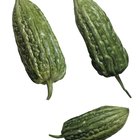
Bitter Melon for Acne
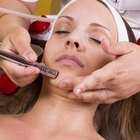
Fraxel Laser Treatment Dangers

List of Retinoids

The Use of Neem Juice in Skin Care as ...

Burdock Root for Acne

Chasteberry for Acne
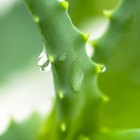
Aloe Ferox Benefits
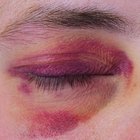
Bromelain & Bruising

Chamomile & Aloe Skin Care
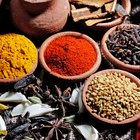
Fenugreek for Acne

Anise Seed Cautions and Side Effects

Natural Ways to Get Rid of Scabies

Golden Flax Seed Vs. Dark Flax Seed

Metamucil Dosage for Cats
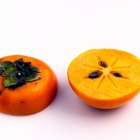
What Are the Benefits of Persimmons?

Grapefruit Skin Benefits

What Are the Benefits of Ashwagandha in ...

Wild Yam for Hair Growth
References
Resources
Writer Bio
Walt Pickut has published peer-reviewed medical research since 1971. Pickut teaches presentational speaking and holds board registries in respiratory care and sleep technology. He is a member of the Society of Professional Journalists and the American Society of Business Publication Editors and is editor for "The Jamestown Gazette." Pickut holds bachelor's degrees in biology and communication, and master's degrees in physiology and mass communication.
Photo Credits
garden image by memorialphoto from Fotolia.com